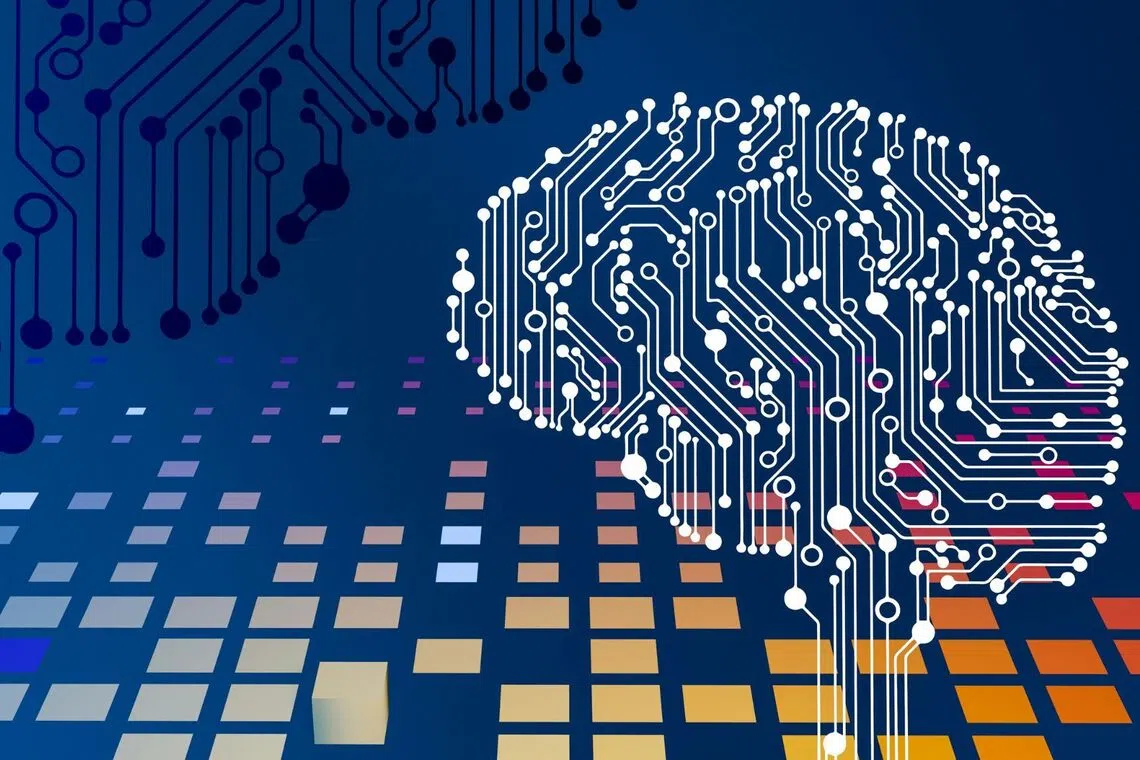With rise of AI agents, experts question human value
Sign up now: Get insights on Asia's fast-moving developments

Driven by expectations of increased productivity, AI agents are being considered for a wide range of tasks.
PHOTO ILLUSTRATION: UNSPLASH
TOKYO - Imagine a future in which you not only get instructions for your job issued by an artificial intelligence (AI), but your boss could also be replaced by an AI system.
AI experts in Japan say that is not so far-fetched given the rise of AI agents – autonomous systems that use reasoning to observe their environment, plan actions and execute tasks, often with little human intervention.
In July, chairman and chief executive of Softbank Group Masayoshi Son said his company would have 1 billion agents by the end of 2025.
If you are not familiar with AI agents, imagine another scenario. Before heading to a business meeting with a client, a sales rep is chatting with an AI sales agent and receives this message, “Thinking about the client’s needs, these are the product recommendations for today.”
The agent recommends products based on information in the company and online. During the meeting, it analyses the discussion with the client and coordinates with headquarters’ production department to determine if additional production is possible. By the time participants in the meeting take a break, a quote is ready.
This scene may soon become commonplace with agents. Unlike generative AI, agents do not require detailed instructions.
Driven by expectations of increased productivity, AI agents are being considered for a wide range of tasks, including handling inquiries at call centres and software development.
Their capabilities are realised by combining various cutting-edge technologies, including large language models. Developers like Google and Open AI, the creator of ChatGPT, are locked in a fierce competition with leading Chinese AI firms such as DeepSeek.
With Mr Son’s proclamation and the heightened attention on new technologies, 2025 is being dubbed the “Year of the AI Agents”.
Dr Gakuse Hoshina, who oversees Japan’s AI business at global consulting firm Accenture, believes organisations going forward will routinely include agents alongside humans.
“Autonomy is a major factor,” Dr Hoshina said.
He added: “When you tell the agent, ‘I would like to do this or that,’ it will collect data, make a plan and execute the task on its own. Looking forward, humans and agents will collaborate on a variety of tasks.”
Dr Hoshina suggests negotiations will not only be between agents and humans, but between agents themselves.
“For example, an agent from a company might coordinate terms in advance with an agent from a client company, and then a person would appear at the end to sign the contract,” said Dr Hoshina.
Just how far will agents climb up the corporate ladder?
“It looks like we are moving towards a world where management will be conducted in consultation with the agents,” Dr Hoshina said.
“We are developing agents that can serve in executive roles such as CFOs and CEOs. Having learned from various data sources, they can participate in meetings, present compelling figures on market size and share, and potentially enhance the quality and pace of discussions.”
What will happen to human value? Dr Hoshina is hopeful people will still play an important role.
He said: “AI excels at optimisation, but it does not possess will. In contrast, people sometimes rally around leaders, who may not be logical but have a passionate desire to make the world a better place.”
He describes a new frontier where becoming a person who is able to move other people through words will be increasingly important.
“In the future, people will be more concerned with how you move people’s hearts with words and passion than management skill. That is why it is crucial to utilise AI while accumulating a broad range of experiences to enhance one’s attractiveness as a person,” said Dr Hoshina.
The workplace will not be the only likely area affected by AI technologies – society and people’s values will also be greatly influenced.
Mr Kazuo Hiyane, head of the Generative AI Lab at Mitsubishi Research Institute, notes predictions that suggest that AI systems that create other AI systems will soon emerge, leading to an explosive revolution in performance.
“People who use AI and people who are used by AI will emerge. Some people who have delivery jobs already have instructions on routes dictated by AI, and in the same way, I think we will see the number of people taking instructions from AI in office-based work increase as well,” Mr Hiyane said.
Uneasiness about job loss will also deepen.
“The percentage of people who will be able to leverage their strengths to find employment when they lose their jobs to AI will be low. Implementing ‘reskilling’ is likely to become a social issue going forward,” he said.
Mr Hiyane said he is basically optimistic about the future of AI, but there are definite risks to humanity.
“For example, there is a danger of causing significant harm to society if those in power misuse high-powered AI for the surveillance of citizens or to manipulate public opinion,” Mr Hiyane said, adding that in the future, more advanced AI may also make decisions that are beneficial to AI itself but contrary to the interests of humanity.
Decision-making and taking responsibility may be one of the few roles left for humans, said Mr Hiyane. KYODO NEWS


